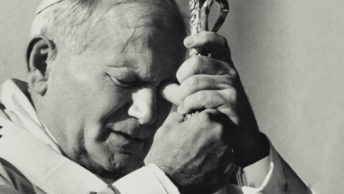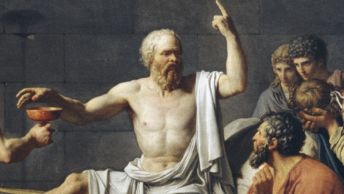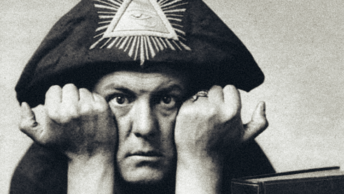As the Pro-Choice community rallies around reproductive rights, there is irony in their use of language. In this age of science, our language has become quite specific. Not surprisingly, as scientific-knowledge progresses, new fields of research and specialties emerge. As they do, we come to call these practitioners by their names. They are oncologists, radiologists, and astrophysicists. At conferences and on television, these skilled practitioners fully describe all that they do. And yet, among abortionists, there continues to be less than full disclosure regarding that which occurs within their inner sanctuaries. They remain medical professionals who uphold the so-called Right to Choose. However, when asked to describe the details of their chosen vocation, they opt to use shadowy, non-specific, and unscientific language.
For those who have had children, we know that many blessings flow prior to the birth of a child. In particular, there is the excitement of feeling new life within the womb. With our hands held still, we have felt a baby’s kicks, turns, and hiccups. Such feelings point toward an objective reality of humble cooperation and participation with the Creator in a miracle. With new life before us, we are like the psalmist (Psalm 139) who is struck with awe as he acknowledges his relationship with an all-knowing and ever-present God:
“Lord, you have probed me, you know me: you know when I sit and stand, you understand my thoughts from afar. You formed my inmost being; you knit me in my mother’s womb. I praise you, so wonderfully you made me; wonderful are your works! My very self you knew; my bones were not hidden from you, when I was being made in secret, fashioned as in the depths of the earth. Your eyes foresaw my actions; in your book all are written down; my days were shaped, before one came to be.”
The words of the prophet Jeremiah seem to shout out: I am the Lord, the God of all mankind. Is anything impossible to me? (Jer 33:27) The prophets further note the eternal significance of God’s creation: Before I formed you in the womb, I knew you. Before you were born I dedicated you, a prophet to the nations I appointed you. (Jer 1:5) Can a mother forget her infant, be without tenderness for the child of her womb? Even should she forget, I will never forget you. See, upon the palms of my hands I have written your name, your walls are ever before me. (Is 49:15-16)
While reflecting upon the Incarnation, it is most appropriate to ponder “that the glory of the Creator is revealed in the very existence and beauty of the creatures. St. Francis’Canticle of the Creatures wonderfully proclaims that every part of God’s creation- brothers and sisters, the sun, moon, air, water, fire, the earth and the stars are to be glorified.”[1] In Genesis 1:31, we are told: And God saw everything that he had made, and behold, it was very good.
In recent years, despite the evidence in respect of life found within the Divine and Natural Laws, Sacred Scripture, and the Church’s constant Magisterial teaching, the sanctity and dignity of human life- even the meaning of human life- has come under tremendous pressure from persons and governments who treat unborn children as “non-persons.” Nearly sixty-million aborted lives after the U.S. Supreme Court decision of Roe v Wade (1973), we are called to ponder this callous tragedy which has not only resulted in precious lost lives but has also helped promote a culture of death. In this brave new world, our human personhood has been redefined only to be replaced with a harsh reality of personal freedoms that have been exempted from external and objective norms which find their reality in God’s divine creation.
The first principle of Natural law is founded upon the meaning (ratio) of the good, a good which all things desire. But having turned from this law, we have instead chosen a course of action at odds with correct conscience. Having become incapable of receiving objective truth, these newly- found freedoms (primarily, the right to choose abortion) which society professes have moved us toward the autonomy that Kant spoke of: “the right to be self-determining in the spheres of moral freedom and religious thought.”[2]
Unfortunately, “such independence exercised within a universe created and conserved in being by God creates a lonely and confused state of relativism.”[3] In opposition to a rightful place within a participated theonomy, man now places himself outside the reality of objective, unchanging moral truths and principles. This reality was echoed by Pope John Paul II in his 1993 encyclical Veritatis Splendor (The Splendor of Truth). Today, mankind is prone to believe that freedom is nothing more than doing one’s own thing or whatever happens to feel good at the moment. By doing so, he violates the intrinsic dignity that has been given each created human being. This dignity is no better expressed than in Genesis 1:27: God created man in his image, in the divine image he created him, male and female he created them.
In a 1995 statement, the Catholic bishops of the United States recalled the journey from Jerusalem to Jericho (Lk 10: 29-37) where Jesus asks “Who is my neighbor?” They contend that we are all “journeying down that road, and this story haunts us, for it flatly contradicts the strong persuasion so widely held today that our loyalties and are obligations are owed only to those of our choice. On the contrary we owe fidelity to those we choose and, beyond them, to others we do not choose. It is we who have been chosen- to go out of our way for them. The language and the mindset of abortion- presented in terms of unlimited choice, privacy, and autonomy- pervade our entertainment, our news, our public policies, and even our private lives. Wrapped so appealingly in the language of self-determination, cloaked so powerfully in the mantle of federal authority, is it any wonder that the logic of Roe has been extended to apply beyond the unborn? Is it any wonder that it appears so explicitly in our public and private conversations about euthanasia?”[4]
The retired Archbishop of Los Angeles, Cardinal Roger Mahony, once remarked: “So often I hear candidates for political office proclaim their great support for a ‘woman’s right to choose.’ But choose what? ‘Choice’ in American history and culture has become a precious heritage. But normally, when one speaks about choosing something, one finishes the sentence. For example, when ordering a meal in a restaurant, after viewing the menu you don’t say to the waiter, ‘I think I will choose….and not tell the waiter your choice. What’s he supposed to bring you- the fried chicken or the meatloaf? After some sleuthing on my own, it appears that what politicians really mean is, ‘I support a woman’s right to get an abortion.’ But why can’t they just say that? Why do the media and the press allow political candidates to get away with this vague, meaningless, ‘choice’ language when they should be demanding that candidates finish the sentence? I am increasingly suspicious that shadow language is used because many political leaders either don’t support abortion or are afraid to say so, or because they want to pretend that a moral evil is somehow a moral good. And the only way to make evil into good is to disguise or hide it. Maybe they don’t tell us the truth because they are trying to hide the reality of the inherent evil in abortion.”[5]
The great political columnist, Joseph Sobran, has noted that, “despite the fact that the nations’ abortionists eliminate a million and a half new lives every year, we’re not supposed to call it ‘murder’- that’s bad manners, so I won’t. The people who do it prefer not to be called ‘abortionists,’ for some reason, but that seems like asking a lot. Other doctors don’t mind being called by their specialties- dentists, dermatologists, pediatricians, or ophthalmologists. The issue has always been attended by quibbling from people on the pro-abortion side. They move from argument to argument, like nomads. They used to quibble about when life begins: It was a ‘religious question,’ they said. The obvious answer, at conception, didn’t satisfy them, though even atheists will agree that a squirrel or a dachshund begins its life when it’s conceived. Biologists handle that one without feeling they need to call in the help of theologians. The people who favored abortion when they weren’t sure when life begins still favor it now that they know the answer.”[6]
According to the Bishops, “abortion and now euthanasia have become socially accepted acts because many have been persuaded that people unfairly lose their freedom when others make claims on them that pose burdens and obligations. Many have come to think of an unplanned baby as an unwanted baby, and of an undesired baby as an undesirable one. The prescribed social remedy has been to put an end to the baby’s life before he or she can make a claim on yours. Many of the critical moments in our lives require that we rise to meet responsibilities given to us, not chosen by us. To celebrate individualistic concepts of freedom severs the true meaning of freedom from its moorings and distorts social life. It extols a society in which individuals stand side by side, but have no bonds holding them together. To evade the full burden of putting ourselves at the disposal of those we belong to, to allot them only the slack in our own agendas and not what they require, is to practice desertion by other means.”[7]
A prime example of the culture of death exists in the Princeton bioethicist Peter Singer, an advocate of circumstantially-driven infanticide. According to Singer, “the fact that a being is a human being, in the sense of the species Homo sapiens, is not relevant to the wrongness of killing it; it is, rather, characteristics like rationality, autonomy, and self-consciousness that make a difference. Infants lack these characteristics. Killing them, therefore, cannot be equated with killing normal human beings, or any other self-conscious beings. The potential of a fetus to become a rational, self-conscious being cannot count against killing it at a stage when it lacks these characteristics- not, that is, unless we are also prepared to count the value of rational self-conscious life as a reason against contraception or celibacy. No infant- disabled or not- has as strong a claim to life as beings capable of seeing themselves as distinct entities, existing over time. The difference between killing disabled and normal infants lies not in any supposed right to life that the latter has and former lacks, but in other considerations about killing.”[8]
Singer goes on to further advocate a radical utilitarian view that insists that should prenatal testing prove inconclusive regarding the finding of a “defect” in the newborn infant, parents should have the right, up to thirty days after delivery, to “terminate” the child. In theory, this action would allow the parents to conceive another child that is free of “defects.” According to Singer, this will provide them with greater personal and mutual satisfaction. “In Germany, people with disabilities have disrupted Singer at some of his lectures and convinced sponsors to cancel other speaking engagements. They say his ideas resemble those of the Nazis. In 1983, Singer proposed letting newborn infants with Down Syndrome starve to death. In his own words: ‘If we compare a severely defective human infant with a nonhuman animal, a dog or pig, for example, we will often find the nonhuman to have superior capacities, both actual and potential, for rationality, self-consciousness, communication, and anything else that can plausibly be considered morally significant.’ He has since launched a full-scale attack on the Judeo-Christian idea of the sanctity of life where he replaces the ‘old’ incoherent ethic with a new set of ‘commandments,’ one of which is: All human life is not of equal worth. He and his followers, however, are astonished by this charge, because they see themselves as very enlightened and progressive thinkers.”[9]
Given the tremendous values upheaval occurring within the secular society, the Church continues to be the “voice crying out in the wilderness” on behalf of reason. Fully grounded in the Divine law, and in support of the dignity, sanctity, and holiness which characterize human life, the Church speaks. In the twentieth century, Pope Pius XI’s 1930 encyclical letter Casti Connubii (Christian Marriage), Vatican II, and Pope Paul VI’s 1968 encyclical Humane Vitae (Of Human Life) helped pave the way for Pope John Paul II’s 1995 encyclical Evangelium Vitae (Gospel of Life). Prior to an exploration of the Gospel of Life, however, it is important to identify that which has been taught from the earliest times of the Church.
The first century Didache, the teaching of the twelve apostles, is clear when it states: “There are two ways, one of life and one of death; and between the two ways there is a great difference. Now, this is the way of life. The second commandment of the teaching: Do not murder; do not commit adultery; do not corrupt boys; do not practice magic; do not go in for sorcery; do not murder a child by abortion or kill a newborn infant.”[10]
In the second century, Tertullian states: “they [John and Jesus] were both alive while still in the womb. Elizabeth rejoiced as the infant leaped in her womb; Mary glorifies the Lord because Christ within inspired her. Each mother recognizes her child and each is known by her child who is alive, being not merely souls but also spirits.”[11] In the fourth century, at the Council of Ancyra, Canon 21 states: “Women who prostitute themselves, and who kill the child thus begotten, or who try to destroy them when in their wombs, are by ancient law excommunicated to the end of their lives.”[12] St. Ambrose remarks: “But why the eye or the hand, since the aborted child has both a hand and an eye which has already been formed?”[13] In 1930, Pope Pius XI reaffirms the right to life: “The life of each is equally sacred, and no one has the power, not even the public authority, to destroy it. It is of no use to appeal to the right of taking away life for here it is a question of the innocent, whereas that right has regard only to the guilty; nor is there here question of defense by bloodshed against an unjust aggressor (for who would call an innocent child an unjust aggressor?); again there is no question here of what is called the ‘law of extreme necessity’ which could never extend to the direct killing of the innocent.”[14] The Holy Father then appeals to public officials who would condone or encourage these activities: “Those who hold the reigns of government should not forget that it is the duty of public authority by appropriate laws and sanctions to defend the lives of the innocent. If the public magistrates, by their laws and ordinances betray them to death at the hands of doctors or of others, let them remember that God is the Judge and Avenger of innocent blood which cries from earth to Heaven.”[15]
In the first chapter of Evangelium Vitae, John Paul II recalls this ancient blood as the blood of Abel the Just. “Cain rose up against his brother Abel, and killed him.” (Gen 4:8) It is through this fratricide, “this experience of death which enters the world and casts its shadow of meaninglessness over man’s entire existence.”[16] The Catechism of the Catholic Church (#2259) indicates that Abel’s murder by his brother Cain reveals the “presence of anger and envy in man, the consequences of original sin, from the beginning of human history. Man has become the enemy of his fellow man.” In this murder, the solidarity of mankind and thereby the recognition of the common plight of all persons within the human family in which we share equal personal dignity, is obliterated. As such, “at the root of every act of violence against one’s neighbor is a concession to the thinking of the evil one, the one who ‘was a murderer from the beginning’(Jn 8:44).”[17] “For the Jewish people, as for many peoples of antiquity, blood is the source of life. Indeed blood is the life (Dt 12:23), and life, especially human life, belongs only to God: for this reason whoever attacks human life, in some way attacks God himself.”[18] “The Lord said to Cain: What have you done? The voice of your brother’s blood is crying out to me from the ground (Gen 4:10). The Lord’s question, which Cain cannot escape, is addressed also to the people of today, to make them realize the extent and gravity of the attacks against life, which continues to mark human history.”[19]
As Blessed John Paul II notes, today’s reality can be described as a “veritable structure of sin” which denies the solidarity proper to human persons and unleashes a “culture of death.” “From this point of view, it is possible to speak in a certain sense of a war of the powerful against the weak: a life which would require greater acceptance, love and care is considered useless, or held to an intolerable burden, and is therefore rejected in one way or another. A person, who, because of illness, handicap or, more simply, just by existing, compromises the well-being or the lifestyle of those who are more favored tends to be looked upon as an enemy to be resisted or eliminated. In this way, a kind of ‘conspiracy against life’ is unleashed.”[20] Recalling the prophecy of his predecessor, Pope Paul VI, who predicted a moral decay associated with the widespread use of artificial contraception, Pope John Paul II connects abortion and contraception together stating that they are fruits of the same tree. “It is true that in many cases contraception and even abortion are practiced under the pressure or real-life difficulties, which nonetheless can never exonerate from striving to observe God’s law fully. Still, in very many other instances such practices are rooted in a hedonistic mentality unwilling to accept responsibility in matters of sexuality, and they imply a self-centered concept of freedom, which regards procreation as an obstacle to personal fulfillment. The life which could result from a sexual encounter thus becomes an enemy to be avoided at all costs, and abortion becomes the only possible decisive response to failed contraception.”[21]
What, therefore, are we to think of a ‘freedom’ which so exalts the individual in an absolute way, while at the same time provides no room for human solidarity, openness to others and service of them? According to John Paul II, “when freedom, out of a desire to emancipate itself from all forms of tradition and authority, shuts out even the most obvious evidence of an objective and universal truth, which is the foundation of personal and social life, then the person ends up by no longer taking as the sole and indisputable point of reference for his own choices the truth about good and evil, but only his subjective and changeable opinion or, indeed, his selfish interest and whim. This view of freedom leads to a serious distortion of life in society. If the promotion of the self is understood in terms of absolute autonomy, people inevitably reach the point of rejecting one another. Everything is negotiable, everything is open to bargaining: even the first of the fundamental rights, the right to life. To claim the right to abortion, infanticide and euthanasia, and to recognize that in law, means to attribute to human freedom a perverse and evil significance: that of an absolute power over others and against others. This is the death of true freedom: ‘Truly, truly, I say to you, every one who commits sin is a slave to sin.’ (Jn 8:34) [22]
Despite the tragedy of our time, hope remains ours. 1 Pt 1:18-19 reminds us: You know that you were ransomed from the futile ways inherited by your fathers, not with perishable things such as silver or gold, but with the precious blood of Christ, like that of a lamb without blemish or spot. Recalling that blood is the source of life, we must continue to commit ourselves to life. In committing ourselves to the Gospel of Life, we do so knowing that we will likely face harsh criticism from a world that is hostile to the truth. However, as the martyr knows full well, there can be no justice, freedom, and peace apart from God’s objective moral law.
SOURCES:
Alan Schreck, Ph.D., Splendor of the Church, Immaculata Magazine, Libertyville, IL.
Tertullian (c. 160-240), De Anima;
St. Ambrose (c. 340-397), Hexameron V.18.58 [private translation];
Gerald O’Collins, S.J. and Edward G. Farrugia, S.J., A Concise Dictionary of Theology, NJ: Paulist Press, 1991.
Council of Elvira (c.305).
The Didache (1st Century A.D.)- The Teaching of the Twelve Apostles
Cardinal Roger Mahony, Complete the Sentence Please…, The Tidings- Archdiocese of Los Angeles, 19 May 2000.
Pope Paul VI, Humanae Vitae, 1968.
Catechism of the Catholic Church, (#s 2258-2262, 2268-2279).
Pope John Paul II, Centesimus Annus, 1 May 1991.
Pope John Paul II, Christifideles Laici (On the Vocation and Mission of the Lay Faithful in the Church and in the World, 30 December 1988.
Pope Pius XI, Casti Connubii, 31 December 1930.
Pope John XXIII, Mater et Magistra, 15 May 1961.
Vatican Council II, Guadium et Spes (Constitution on the Church in the Modern World), 7 December 1965.
Pope John Paul II, Familiaris Consortio (On the Role of the Christian Family in the Modern World), 22 November 1981.
Pope John Paul II, Mulieris Dignitatem (On the Dignity and Vocation of Women), 15 August 1988.
Pope John Paul II, Evangelium Vitae (Gospel of Life), 25 March 1995.
U.S. Catholic Bishops, Faithful for Life: A Moral Reflection, September 1995.
Pope John Paul II, Message to International Congress, 23 April 1996.
Richard M. Doerflinger, The Quality of Life: Who’s to Judge? NCCB Secretariat for Pro-Life Activities, EWTN.com
Joseph Sobran, Column: The Best Argument against Abortion? A Baby., Universal Press Syndicate.
Peter Singer, Taking Life: Humans, Ira W. DeCamp Professor of Bioethics, University Center for Human Values, Princeton University [Excerpted from Practical Ethics, 2ndEdition, Cambridge, 1993].
CITATIONS:
[1] Alan Schreck, Splendor of the Church, pp.1; [2] Concise Dictionary of Theology, pp.22; [3] IBID, pp.22; [4] U.S. Catholic Bishops, Faithful for Life: A Moral Reflection, pp.1-2; [5] Cardinal Roger Mahony, Complete the Sentence Please…, The Tidings, pp. 1-2; [6] Joseph Sobran, The best argument against abortion? A baby. Universal Press Syndicate; [7] U.S. Catholic Bishops, Faithful for Life: A Moral Reflection, pp. 3-5; [8] Peter Singer, Taking Life: Humans, pp. 5; [9] Richard M. Doerlinger, The Quality of Life: Who’s to Judge, pp. 1-2; [10] The Didache, #s 1-2; [11] Tertullian, De Anima 26.4; [12] Council of Ancyra (314 A.D.), Canon 21; [13] St. Ambrose, Expositio evangelii secundum Lucam, lib. 10, line 283 [private translation]; [14] Pope Pius XI, Casti Connubii, #64; [15] IBID, #67; [16] Pope John Paul II, Evangelium Vitae, #7; [17] IBID, #8.; [18] IBID, #9.; [19] IBID, #10.; [20] IBID, #12.; [21] IBID, #13; [22] IBID, #19-20.







